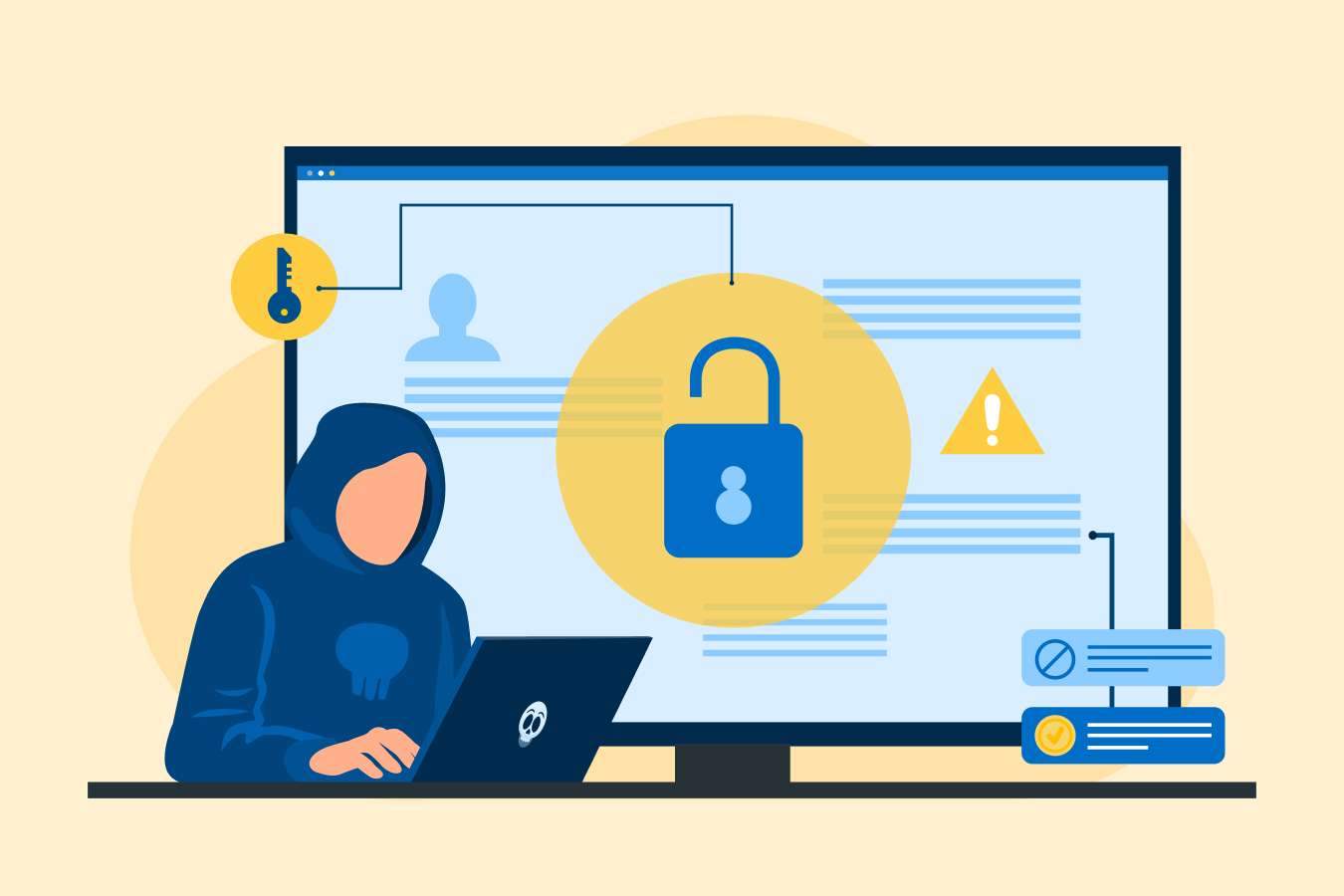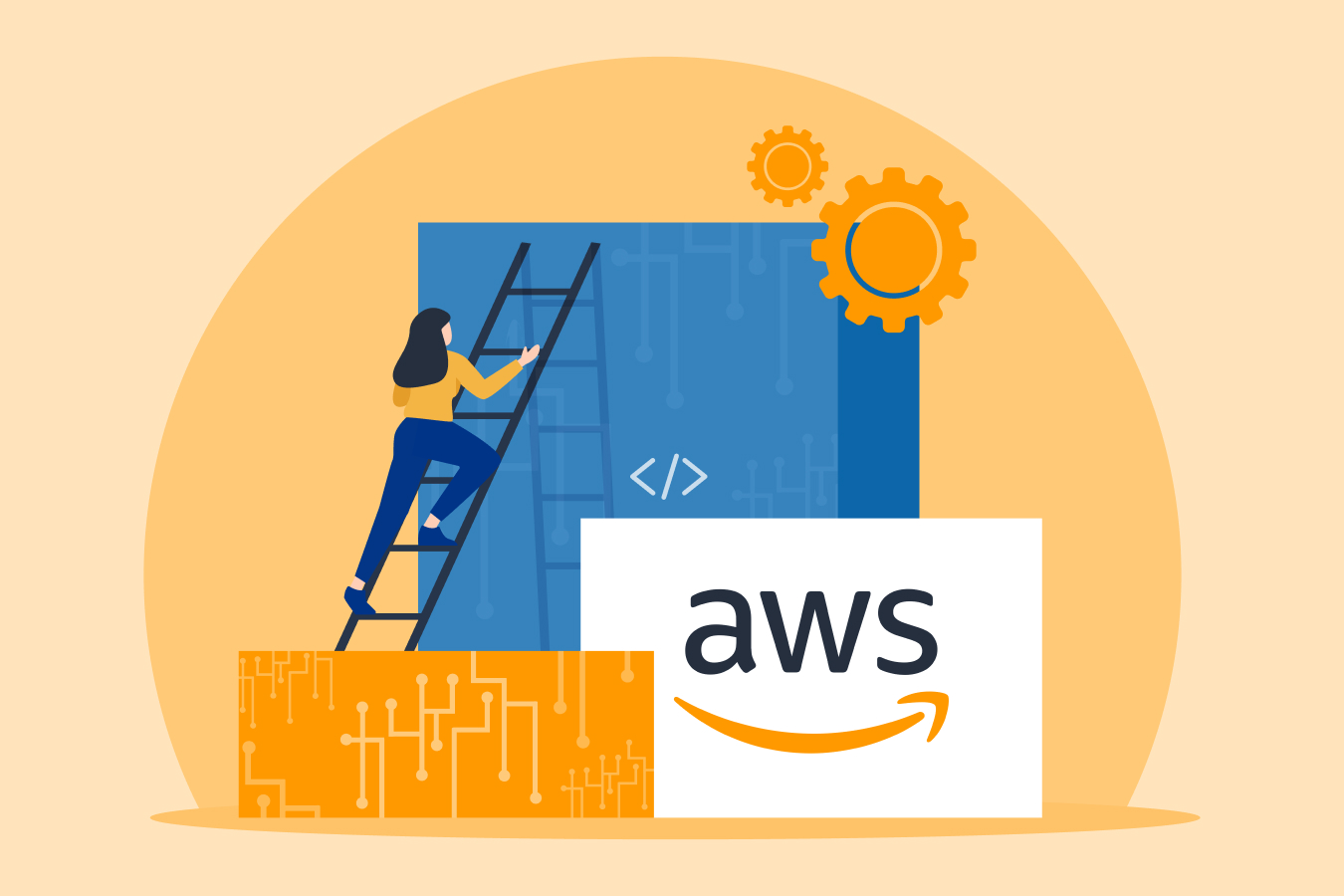Importance of Cyber Security – Understand How to Protect & Prevent Cyber Attacks
Accenture’s Cost of Cybercrime Studies states that 43% of cyberattacks are aimed at small businesses, but only 14% of them are ready to defend themselves. This highlights the need for implementing strong cyber security measures. In this blog, we discuss what is cyber security, the importance of cyber security, along with some common cyber security attacks and measures to avoid them.
What is Cyber Security?
Cyber Security means protecting information on systems or networks by reducing information risks and vulnerabilities such as unauthorized access, usage, interception, data theft, or destruction. It helps one safeguard their data against a cyberattack. Cybersecurity is also known as information technology security or electronic information security.
To enhance your knowledge about cyber security and cyber security attacks, refer to an online ethical hacking course.
Importance of Cyber Security
Even a simple security breach can cause immense loss to businesses and individuals. Hence, cyber security has become an essential part of a world that is rapidly digitizing. Here are some points to keep in mind when it comes to understanding the importance of cyber security..
- Protection of Ideas and Intellectual Property: Cyber security helps organizations and individuals protect their innovations from cyber attacks and theft. Safeguarding these ensures that the new products and services are not replicated or stolen by competitors.
- Cloud Transformation: With an increase in the introduction of new technologies, the shift to the cloud has become imminent. Data is being created, stored, and shared in the cloud. The organizations that invest in the security measures for these new technologies are better able to harness the advantages of the cloud.
- Safeguards Business Operations: An organization, as part of a cyber security measure, develops an incident response plan, which outlines the steps to be taken in the event of a cyber attack. It is important as it helps an organization quickly and efficiently respond to an attack, which in turn, maintains its reputation.
- Maintains Trust of Customers and Employees: No one wants to be associated with an organization that cannot protect their data. Hence, organizations build trust with their customers and employees by maintaining a high level of cyber security.
- Safe Finances: A data breach not only leads to data damage but also financial losses for an organization. With cyber security, these organizations can maintain customer satisfaction, costs, and stock value, all of which help secure their financial position.
- Helps Avoid Fines and Penalties: When employees and companies implement cyber security measures, they can secure data and avoid any penalties and fines that accompany security breaches.
- Helps Maintain a Competitive Edge: When a company invests in cyber security, it automatically upgrades itself to a level above its competitors who might not have invested in cyber security.
- Safeguards from Fraud: Cyber attacks often target students and steal their data for many offenses ranging from extortion to theft of money. With cyber security, these students will no longer be vulnerable to such attacks.

Common Cyber Security Attacks
A cyber attack is a deliberate attempt to exploit a system or network for damage, theft, or misuse of data for malicious purposes. To understand the importance of cyber security, you should be aware of the common types of cyber attacks.
- Malware Attacks: Malware is malicious software that invades devices or systems to steal information, corrupt data, or spam users with advertising content. It includes trojan viruses, spyware, ransomware, adware, and worms.
- Phishing Attacks: In a phishing attack, a user is tricked into believing an email attachment or link is from a trusted source, so they click on it and become vulnerable to data theft.
- Ransomware Attacks: It is a type of malware that the attackers use to encrypt files or systems and later demand a ransom to decrypt them. It leads to the loss of data, the shutdown of the system, and possible financial loss.
- Denial-of-Service Attacks: Here, the attackers exhaust the resources and bandwidth of a system by increasing unnecessary traffic. Because of this, the server is unable to take incoming requests and the website either shuts down or slows down.
- Man-in-the-Middle Attacks: Here, the attacker intercepts or hijacks the communication between the client and hosts to steal and manipulate data. It is also known as an eavesdropping attack.
- SQL Injection Attacks: The SQL injection attack targets database-driven websites. A malicious SQL code is injected into the database to view, delete, or modify data. The attackers might also get administrative rights this way.
- Cryptojacking: It is an attack where the attacker aims to mine cryptocurrency by gaining access to someone else’s computer.
Cyber Security Measures for Protection and Prevention
The importance of cyber security lies in ensuring the security of your data. Here are some cyber security measures you can take to protect your data.
- Keep Software and Systems Updated: Outdated software and systems are susceptible to cyber-attacks. Attackers can exploit these to enter the network. Hence, keep your software and systems updated with the use of a patch management system.
- Install a Firewall: One of the most widely used cyber security measures is installing a firewall. It blocks attacks on the system or network and prevents any damage.
- Use Strong Passwords: Compromised passwords can lead to serious repercussions, be it in a personal space or professional. Use strong passwords with both uppercase and lowercase letters, numbers, and special characters. Also, change passwords every three months, use different passwords for different accounts, and do not share credentials with others at work.
- Use Multi-factor Authentication: Add an extra layer of security to your data security using multi-factor authentication. It can be done through a mobile phone, fingerprint, voice, security token, or one-time password.
- Ensure Endpoint Protection: Mobile devices, tablets, and laptops connected to corporate networks make them vulnerable to cyber-attacks. Use endpoint protection software to ensure the protection of the network remotely bridged to these devices.
- Backup Data Regularly: Ensure that data backups are regular and stored in different locations to avoid losing the data if one server is compromised. It helps in avoiding disruption of operations and potential financial loss during security breaches due to cyberattacks.
- Control Access to the System: Give minimum access and permissions on the system. This will ensure no sensitive information is accessed by those who do not need it. Additionally, access can be provided for a specific period only.
- Monitor Third-party Access: Organizations should monitor the activities of privileged and third-party users to ensure that their sensitive data is safe. User activity monitoring or UAM helps in monitoring these users by detecting malicious activity and collecting evidence, such as visited websites, typed keystrokes, and opened applications.
- Manage Supply Chain Risks: Vendors, subcontractors, and suppliers working with the organization have access to the organization’s resources, making them susceptible to cyber-attacks. To prevent the supply chain from getting infected, develop a comprehensive strategy for cyber supply chain risk management, limit the subcontractors, monitor the activities of vendors within the organization’s IT infrastructure, and collaborate with suppliers to improve mutual security.
- Create a Cybersecurity Policy: A document with all the information security practices listed is a must for organizations. The policy should include a centralized cyber security policy and different policies catering to different departments. The hierarchical distribution will ensure the effectiveness of the policy as well as uninterrupted workflows.
Examples of Cyber Security Attacks on Various Organizations
Every year several organizations fall prey to malicious cyber security attacks that steal sensitive data, interrupt business operations, and cause huge financial losses. These cyber security attacks are varied in their structure, method, and intent. Some examples of these attacks on organizations are as follows:
- IoT-Based Attacks: In these types of attacks, the attacker exploits the vulnerabilities in Internet of Things (IoT) devices, such as security cameras, smart thermostats, smart locks, intelligent lighting, etc. They use these devices to steal data or manipulate them to cause security risks.
- Corporate Account Takeover (CATO): Hackers, in this attack, steal login credentials and use them to access business users’ bank accounts. Organizations can face huge financial losses if the credentials of their corporate accounts are compromised.
- Zero-Day Exploit: Zero-day attacks happen when a vulnerability is reported in the system or network of an organization. Once this news reaches the attackers, they exploit the vulnerability before a solution is implemented.
- Insider Threat: This threat is initiated by an insider who can be an employee or a partner with necessary access controls to data. The intent behind this attack varies from greed or malice to simply carelessness.
- Watering Hole Attack: In this type of attack, the attacker targets the website a particular group of organizations use. The website is infected with malware to gain access to the information of the user and their computer system. It can lead to severe security threats and data leaks in an organization.
How Can You Protect Your Data From Breaching?
Here are some ways you can protect your data from breaching:
- Awareness: Firstly, be aware of the necessary precautions that you can take to safeguard yourself from the latest cyber threats. For example, do not share your OTP or personal credentials with anyone unless it is a verified source.
- Use Antivirus Software: Always use antivirus software to protect your devices from malicious cyber attacks.
- Be Cautious With Emails: Do not open attachments with emails without scanning them for possible viruses.
- Use Virtual Private Network (VPN): When using public Wi-Fi, use a virtual private network to encrypt your internet connection and protect your data from eavesdropping.
- Lock Your Devices: Use a password or PIN to lock devices like mobile phones, tablets, laptops, and personal computers. You can also use biometric authentication for this.
- Review Privacy Settings: Review the privacy settings of your social networking accounts to limit the amount of personal information you share online.
How Can You Learn the Basics of Cyber Security?
Here are some ways you can learn the basics of cyber security:
- Online Resources: Begin by reading about the fundamentals of cyber security from legitimate sources and gain knowledge of the basic concepts. You can refer to our cyber security basics guide to kickstart your journey.
- Certification Course: You can pursue a short-term ethical hacking course to learn how to protect your data.
- Join the Community: Become a part of online groups and communities to discuss the latest threats and tips to combat them.
- Stay Updated: Self-research is essential too. Keep yourself updated with the latest cyber security threats by reading newspaper articles, blogs, tech websites, journals, magazines, and more.
- Level Up with Internships: Search and apply for internships to gain practical experience in dealing with cyber threats. You can explore internship opportunities through Internshala, which is one of the best hiring portals.
Conclusion
To understand the importance of cyber security, we have discussed the meaning of cyber security and its different categories along with common cyber security attacks and measures. Overall, cyber security is necessary to safeguard individuals and organizations from cyber-attacks aimed at viewing, stealing, and manipulating data for malicious purposes.
Have you encountered any cyber security threats before? Share with us some tips you used to combat it in the comments section below. Check out these cyber security projects with source code to practice and upgrade your skills. If you’re considering starting a career in the IT field, you can also learn about these high-paying tech jobs in 2024.
FAQs
Cyber security awareness is important because it helps individuals and organizations minimize the risk of cyber attacks, such as malware infections, phishing activities, data breaches, and more.
The main purpose of cyber security is to safeguard data, networks, and systems from unauthorized access, theft, and other malicious intentions of attackers.
Bob Thomas, a computer scientist, is considered the father of cybersecurity. He created the first computer virus in 1971 to demonstrate the vulnerability of computer systems.
Individuals, organizations, and governments need cyber security to protect their data and assets from criminals who initiate cyber attacks.
The six pillars of cybersecurity are risk management, governance, education and training, technical controls, compliance, and incident management.







